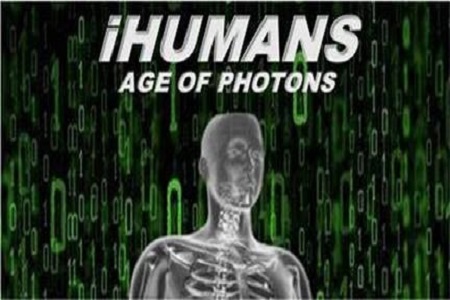
First, there was the steam engine. Then there was electric power, followed by computers. Now we are experiencing the fourth wave in industrial revolutions: artificial intelligence (AI). The Hadassah Medical Organization is at the forefront of this latest transformation.
During “iHumans: Age of Photons,” a February 11 webinar hosted by Hadassah International, Dr. Shai Rosenberg, senior neuro-oncologist at Hadassah and head of its Cancer Computational Biology Laboratory, offered the framework for viewing AI’s impact on the practice of medicine today. He and Prof. Jacob Sosna, chair of Hadassah’s Division of Radiology and Nuclear Medicine, described how AI is enhancing what physicians can achieve and in a shorter amount of time.
Prof. Sosna explained that today, AI is being employed for simple tasks, the “low-hanging fruit.” For example, AI analyzes radiologic images where the expectation is that most will be normal, as with routine mammograms. It differentiates between normal and abnormal mammograms and then alerts the physician to those that are problematic and need to be prioritized for attention.
This sort of triage becomes even more important when it comes to a life-threatening pulmonary embolism, a clot in the lung. AI, Prof. Sosna said, can pick up a pulmonary embolism and alert the radiologist right away. At Hadassah, he reported, radiologists perform 1,200 brain scans a month. Ten percent of those reveal an abnormality. In addition, Prof. Sosna noted, AI, in reading a brain scan, can identify areas of bleeding that a radiologist might not detect.
Prof. Sosna reported that Hadassah has developed AI software that both detects new cancerous lesions and determines whether a lesion has increased or decreased in size, an especially important determination for evaluating whether a specific chemotherapy is working. Also in the realm of using AI for clinical medicine, the pregnancy rate with in vitro fertilization is being increased thanks to AI screening software that identifies the most promising fertilized eggs to implant.
In less than 10 years, Dr. Rosenberg envisions, we will have “an army of algorithms that will accompany our patients on their journeys.” In combination with digitalized clinical data, AI software will provide a means to follow up on how a patient is faring. Dr. Rosenberg is now piloting a tool for cancer patients at Hadassah called “Digital Nurse,” through which digital nurses guide patients through their treatments and troubleshoot side effects.
Oncology is a “very data-rich profession,” Dr. Rosenberg noted. There is a large amount of information on the genetic profile of each patient’s tumor. But, Dr. Rosenberg related, in terms of diagnosis, we only know whether 10 percent of mutations on a gene will cause cancer. The goal now is to instruct AI to create a model to predict whether the other 90 percent of mutations will cause cancer. This is an example of “supervised machine learning,” meaning that the computer creates its own rules for achieving the requested outcome.
Prof. Sosna predicts that, in the future, AI software will screen people for diseases like osteoporosis, where it will pick up a subtle change on a scan, or diabetes, where it will identify a slight increase in glucose level in a blood sample— before a person shows any clinical symptoms.
AI, however, will have to be employed with caution, Dr. Rosenberg explained. Algorithms that are developed in one country may not be applicable in another country. For example, if an algorithm to examine the eye is created in Thailand and the light is not the same as that available in the US, the algorithm will not work in the US.
With the advantages of AI and digital medicine comes the major challenge to prepare physicians to make AI part of their armamentarium, so it becomes a resource they are familiar with and are comfortable using. Hadassah is at the forefront of ensuring that its medical students achieve this comfort level with the new technology. Prof. Sosna and Dr. Rosenberg are teaching a course in digital medicine to all of Hadassah’s medical students. In addition, Hadassah has created an educational program in computational medicine that is already training 47 medical students toward a dual degree in medicine and computer science.
Will computers, which lack empathy, eventually be making the decisions about our health care? “Medicine is a human interaction,” Prof. Sosna related. “You don’t trust a computer; you trust your doctor. A computer can’t look at a person and determine that something is wrong. AI is another tool that will help us as physicians, not a tool that will make physicians disappear.”
This webinar, moderated by HI board member Dr. Manno Saks of Switzerland, is episode 6 in HI’s Winter Live Series “50 Shades of Health: A Journey Into the Future of Medicine,” which provides a window into the latest advances in the frontiers of medicine, as practiced and envisioned by Hadassah’s visionaries.
Watch the webinar below:
